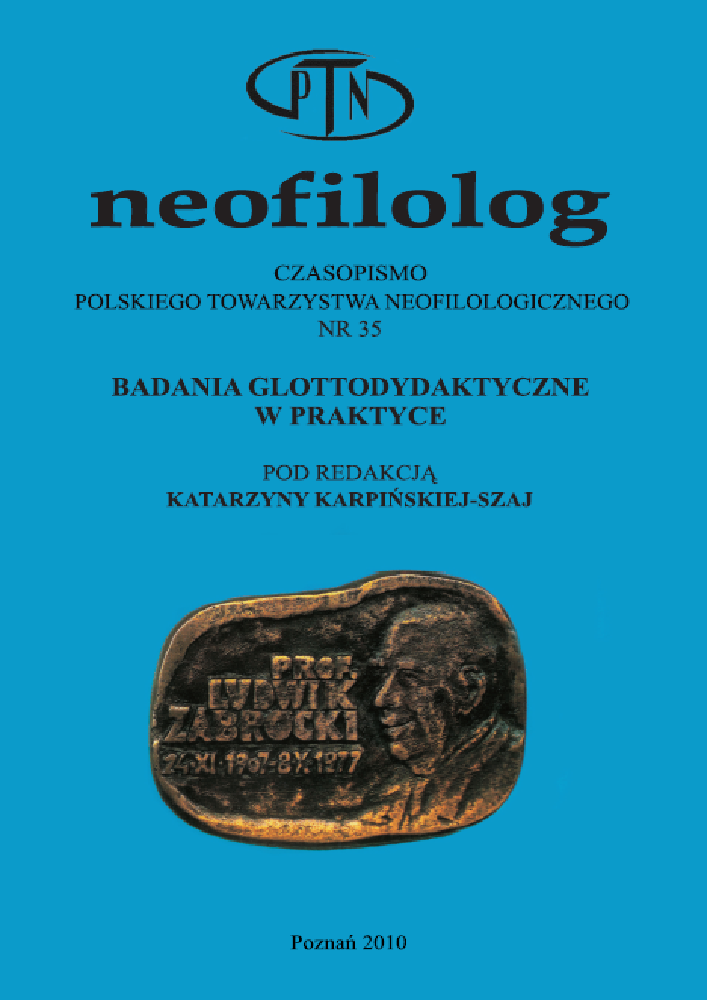Abstract
This paper concerns the teaching of languages for specific purposes to adults. It shows the growing need for this kind of teaching from the European and multicultural perspective. Specialist discourse compared to teaching general language will be described and the implications of such a comparison will analyzed. The paper emphasizes the necessity of determining learners’ needs in specialist communication and the use of such educational innovations as the Internet and the language action perspective.
References
Carras, C., Kohler, P., Sjilagyi, E., Tolas, J. 2007. Le français sur objectifs spécifiques et la classe de langue. Paris: CLE International.
Cadre européen commun de référence pour les langues: apprendre, enseigner, évaluer. 2000. Strasbourg: Conseil de l’Europe.
Dakowska, M. 2001. Psycholingwistyczne podstawy dydaktyki języków obcych. Warszawa: PWN.
Duszak, A. 1998. Tekst, dyskurs, komunikacja międzykulturowa. Warszawa: PWN.
Mangiante J.-M., Parpette, C. 2004. Le français sur objectif spécifique: de l’analyse des besoins à l’élaboration d’un cours. Paris: Hachette.
Mourlhon-Dallies, F. 2006. « Penser le français langue professionnelle ». Le français dans le monde 346: 25-28.
License
Copyright (c) 2010 Małgorzata Kubica

This work is licensed under a Creative Commons Attribution-NoDerivatives 4.0 International License.
Authors
Authors of texts accepted for publication in Neofilolog are required to complete, sign and return to the Editorial team’s office the Agreement for granting a royalty-free license to works with a commitment to grant a CC sub-license.
Under the agreement, the authors of the texts published in Neofilolog grant Adam Mickiewicz University in Poznań a non-exclusive, royalty-free license and authorize the use of Attribution-NoDerivatives 4.0 International (CC BY-ND 4.0) Creative Commons sub-license.
The authors retain the right to the free disposal of the work.
Users
Interested Internet users are entitled to use works that have been published in Neofilolog since 2017, under the following conditions:
▪ attribution – obligation to provide, together with the distributed work, information about the authorship, title, source (link to the original work, DOI) and the license itself.
▪ no derivatives – the work must be preserved in its original form. Without the author's consent, it is not possible to distribute the modified work in the form of translations, publications, etc.
Copyrights are reserved for all texts published since 2017.
Miscellaneous
Adam Mickiewicz University in Poznań retains the property right as a whole (layout, graphic form, title, cover design, logo etc.).
